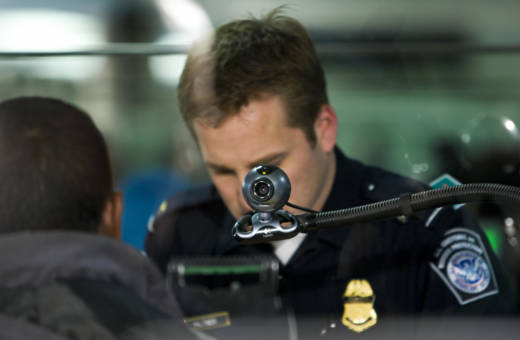The protocol is in response to reports that, under the Trump administration, the Department of Homeland Security is asking some travelers entering the U.S., including American citizens, to turn over their cellphones, laptops, email and social media passwords.
This went on during the Obama administration, too, but there’s some evidence these searches are accelerating, said Alex Abdo, an attorney for the Knight First Amendment Institute.
“We definitely see indications that they are skyrocketing,” Abdo said.
Abdo filed a Freedom of Information Act request to find out exactly how many stops like these have been made and the demographics of who was stopped. Last week, after the Trump administration didn’t respond, Abdo filed a lawsuit.
NBC News did obtain data from the Department of Homeland Security and reported that in February it conducted 5,000 searches of electronic devices. That’s more than all the devices searched in 2015.
“What troubles us most is that the government claims the authority to search the devices of anyone crossing the border without any suspicion of wrongdoing,” Abdo said. “And that last part is the critical part. They think they can search people's devices for any reason or no reason at all when they're crossing the border. And that kind of discretion historically gets abused.”
The Trump administration is considering making searches of electronic devices an official part of its “extreme vetting” process for every foreign traveler entering the U.S., according to the Wall Street Journal.
But what’s getting the attention of tech companies is that the Trump administration appears to be ratcheting up searches of U.S. citizens. That affects the tech industry, and really any company that does business in person, around the world and deals in proprietary information.
Sen. Ron Wyden, a Democrat representing Oregon, introduced a bill that would require the Department of Homeland Security to get a warrant to search the devices of American citizens. The bill has received bipartisan support.
Of course, Silicon Valley relies heavily on noncitizens who are in the U.S. on work visas. The proposed law wouldn't apply to them.
For his part, eShares' Hurkman isn’t taking any chances. The company implemented its new travel policy for employees about six months ago. Hurkman said the last phone call eShares wants to make to a client is this: Hey, when our employee flew back from your office, their phone was seized by border control and someone might have seen your top-secret information.

